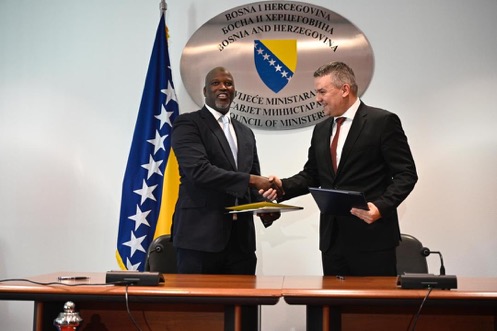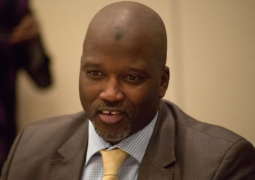
Signed at the premises of the Parliamentary Assembly of BiH in Sarajevo, BiH, the Memorandum will enable the information on conviction from judgements of the ICTY and the Mechanism for persons who were born in BiH or are citizens of BiH to be registered in the domestic criminal records of BiH.
Speaking at the joint press conference held after the signing ceremony, Registrar Tambadou stated: “Today is a watershed moment for the Mechanism and its predecessor, the ICTY, as it marks a significant chapter in the process of accountability. This Memorandum will ensure that those who committed the most serious crimes under the international law will bear the consequences of their actions beyond their term of imprisonment.” Commending the efforts of Minister Bunoza in reaching that milestone achievement, Mr Tambadou added that, “while the signing of the Memorandum may only be the first step in many to come, it shows willingness of BiH authorities and the Mechanism to work together to achieve common goals. This Memorandum is a means to an end, and the ultimate end goal is to achieve reconciliation in Bosnia and Herzegovina. I hope that the actions we have taken today will be immediately followed by an efficient and effective plan of implementation.”
In turn, Minister Bunoza stated that during the past year, right from the start of his mandate, he insisted on resolving this matter, as it creates the preconditions both for reconciliation and for accession to the European Union.
The Mechanism is responsible for carrying out a number of essential functions of the ICTR and the ICTY, which closed in 2015 and 2017 respectively. These include the supervision of enforcement of sentences, tracking and prosecution of remaining fugitives, protection of victims and witnesses, assistance to national jurisdictions, and preservation and management of the archives.
Source: UNITED NATIONS International Residual Mechanism for Criminal Tribunals





